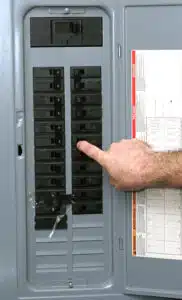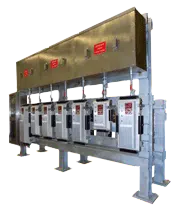
Electricity is a necessity and a crucial part of all kinds of daily tasks, household work and commercial and industrial operations. Having access to electricity is an absolute necessity for everyone. However, electricity is essentially quite volatile and dangerous to directly deal with. There have to be precise solutions to contain it and to successfully deal with the potential risks it presents.
Several devices have been developed to ensure a safe electrical supply. Among such devices, the most common one is a circuit breaker. Do you wish for more information on a circuit breaker? How do these devices operate and what purpose do they serve? Spike Electric is here with another blog to answer all your questions about circuit breakers.
You can reach us online and get all of your queries cleared as well.
What Is The Function Of A Circuit Breaker?
To state in simple words, a circuit breaker is an automated circuit protection system. Every electrical system consists of electrical panels or breaker boxes. Circuit breakers are installed into these panels and a single circuit is fixed to a particular breaker. What does the breaker do? It will control the circuit and if there is an issue such as an overload, the circuit breaker will quickly shut off that circuit. This process is termed as “breaker trip” or “tripping a breaker”. It happens when appliances in an electrical system have several high-power draw tools connected to a single circuit which might lead to an overload.
For example, consider a home electrical system. When several appliances like a heater, a television, and a vacuum are all plugged into a single circuit, it will certainly result in causing a breaker trip. Hence, all the operations will be shut off in that circuit until the issue is fixed. After that, the circuit breaker is reset and brought back into position.
Difference Between A Breaker And A Fuse?
Fuses and breakers perform the same kind of service. However, breakers have been a preferred option for many instead of fuses in a majority of solutions. The major difference between a fuse and a breaker is that a breaker can be used for a longer period because it can be reused even if it wears out which will take a long time. A fuse is meant for one-time use. Why? The filament present in it will either burn, melt, or end up useless. In some instances, the glass cylinder may even end up cracking.
How Does a Breaker Differ from a Disconnect?
Breakers and disconnect switches are employed to resolve the same issues but are used for different purposes and to handle different electrical issues in a commercial facility. Both of them can function in an electrical system interchangeably. However, disconnect switches are considered to be a better option for several commercial equipment applications. Fused disconnect switches are also available. These switches are fired with a fuse to ensure increased protection in the event of an emergency or an electrical issue.
Disconnect Or Circuit Breaker- Which One To Choose?
For general electrical purposes, circuit breakers are an ideal choice. However, several applications and environments require a specific power supply monitoring system, for added safety and protection. Hence, in such cases, disconnects or fused disconnects are employed. That is why it is important to always consult experts and refer to manuals for information on the latest and advanced electrical equipment. Expert certified guidance will help you to install effective emergency power response systems for your facility or commercial space.
Electrical Safety, Supply, And Services With Spike Electric
If you are looking for reliable electrical safety solutions for your business, quality industrial equipment, and products, you can count on Spike Electric. We have years of expertise in providing superior prefabricated electrical and industrial solutions. Our team of expert technicians will take every preference of our clients seriously and will deliver the best.
Feel free to contact us online and interact with our service team today!


